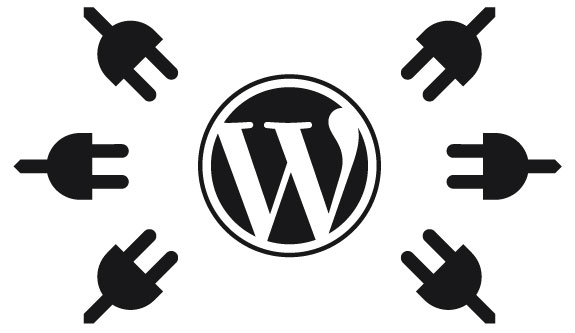
WordPress Plugins
WordPress can be understood as an extensible website framework that includes a lot of basic functionality. The framework can be extended by adding WordPress plugins to your WordPress-based website.
Why You Should Care About WordPress Plugins
Most WordPress websites include several plugins. You simply cannot have an adequately implemented WordPress-based website unless you also add many (6-12 or more) plugins.
The source code and basic styling themes for WordPress are free. WordPress plugins are either free or very inexpensive. There are plugins for virtually any feature or functionality you might want.
So, what could possibly go wrong with this utopian scenario where everything is free or very inexpensive?
Here Today, Gone Tomorrow
WordPress plugins can be created by anyone with minimal technical skills. Because WordPress plugins are free or very cheap, there is little money to be made unless the plugin author can get enough traction in the marketplace to make the effort worthwhile.
With a low barrier to entry (anyone with minimal skills can create a plugin), competition is strong in the plugin market. So it’s difficult to earn enough market share to justify charging anything at all, much less charge and sell enough to financially justify the time and effort that goes into creating and supporting the plugin.
Consequently plugin authors frequently give up and stop developing, patching or supporting their plugins. When this happens (not if it happens) you will find yourself in the unenviable position of having to find an alternative plugin and incorporate it into your website. Or your technical consultant or service provider will need to do it for you, thereby increasing your costs.
Many plugins are published by big well-known companies that will likely not disappear any time soon. Even in these cases these companies release newer versions and stop supporting older versions. In these cases, you will still be compelled to keep up with the newer versions. And that is not necessarly free, cheap, or easy depending on the nature of the changes to newer versions.
Inconsistent and Inadequate Documentation and Support
Because anyone with minimal technical skills can create a plugin, and plugin authors frequently work in isolation (at least there is no uniform coordination on a massive scale), documentation and support for plugins is inconsistent and frequently inadequate.
Since competition in the plugin market is strong, and profitability is difficult to obtain or maintain over time, plugin authors tend to favor adding new features or fixing vulnerabilities over crafting solid and useful documentation. The lack of useful documentation makes it challenging to learn and implement plugins, in general. And because of inconsistencies between competing plugins, knowledge of one does not necessarily translate as knowledge of the other.
Security Vulnerabilities
Due to the ease with which anyone with minimal technical skills can create a plugin, many plugins are not secure and open up your website to various types of attacks or hacks.
WordPress Lock-In
WordPress plugins are inherently tied to WordPress. You cannot move your plugins to another system.
If you someday want to move your website to a system or framework other than WordPress, you will need to account for the fact that your WordPress plugins almost certainly will not work in or with your new website.
Not Free, Potentially Expensive
It is misleading and inaccurate to claim that WordPress plugins are free or inexpensive. While it is true that plugins can be acquired for free or a few dollars, the true expense comes in having to do these things; none of which are free (in terms of both time and money):
- Shop for the right plugin, comparing the available alternatives
- Learn how to properly install and configure each plugin
- Periodically evaluate updates to the plugin published by the plugin author
- Install and configure updates to the plugin which may be compelled by important security fixes or functionality updates your website should have.
This above tasks will need to be done if and when a given plugin is abandoned by its author and you need to find a replacement; or the version of your plugin is no longer supported by its author. Also consider the routine evaluation and upgrade process will need to take place for nearly every plugin in your website.
What are Others Saying?
For independent perspective on the extensive problems with WordPress plugins beyond those listed above, you can Google the phrase: “Problems with WordPress Plugins.”
A Better Solution: Open Source JavaScript-based Plugins (e.g, jQuery).
There is another type of plugin available for any website: JavaScript-based plugins that are either free and open source (FOSS), or available from a variety of indpendent vendors). jQuery-based plugins were the biggest alternative, but since about mid-2017 many are being updated and replaced with pure JavaScript implementations in order to eliminate the dependency on the jQuery library. They are similar to WordPress plugins in that they are a convenient way to extend the functionality of a website. And like WordPress plugins, JavaScript plugins are either free or very inexpensive.
What makes JavaScript plugins better than WordPress plugins is that jQuery plugins are composed entirely from JavaScript, HTML and CSS – the basic building blocks of any website. Consequently, a JavaScript plugin can be utilized in any website, now or in the foreseeable future, including in WordPress websites.
Extending the functionality of a website via JavaScript plugins gives you all the benefits of WordPress plugins, but without locking you into WordPress.
Blue Core CMS™ and jQuery Plugins
Blue Core CMS™ uses both jQuery and pure JavaScript plugins. Blue Core CMS™ websites can be arbitrarily extended by adding new jQuery plugins. If you ever wanted to migrate your website away from Blue Core CMS™, any of your current JavaScript or jQuery plugins will almost certainly work, unmodified, in the new environment. This is because jQuery plugins are framework-agnostic; they will work in virtually any web page, whether WordPress, Blue Core CMS™ or even hand-crafted websites.